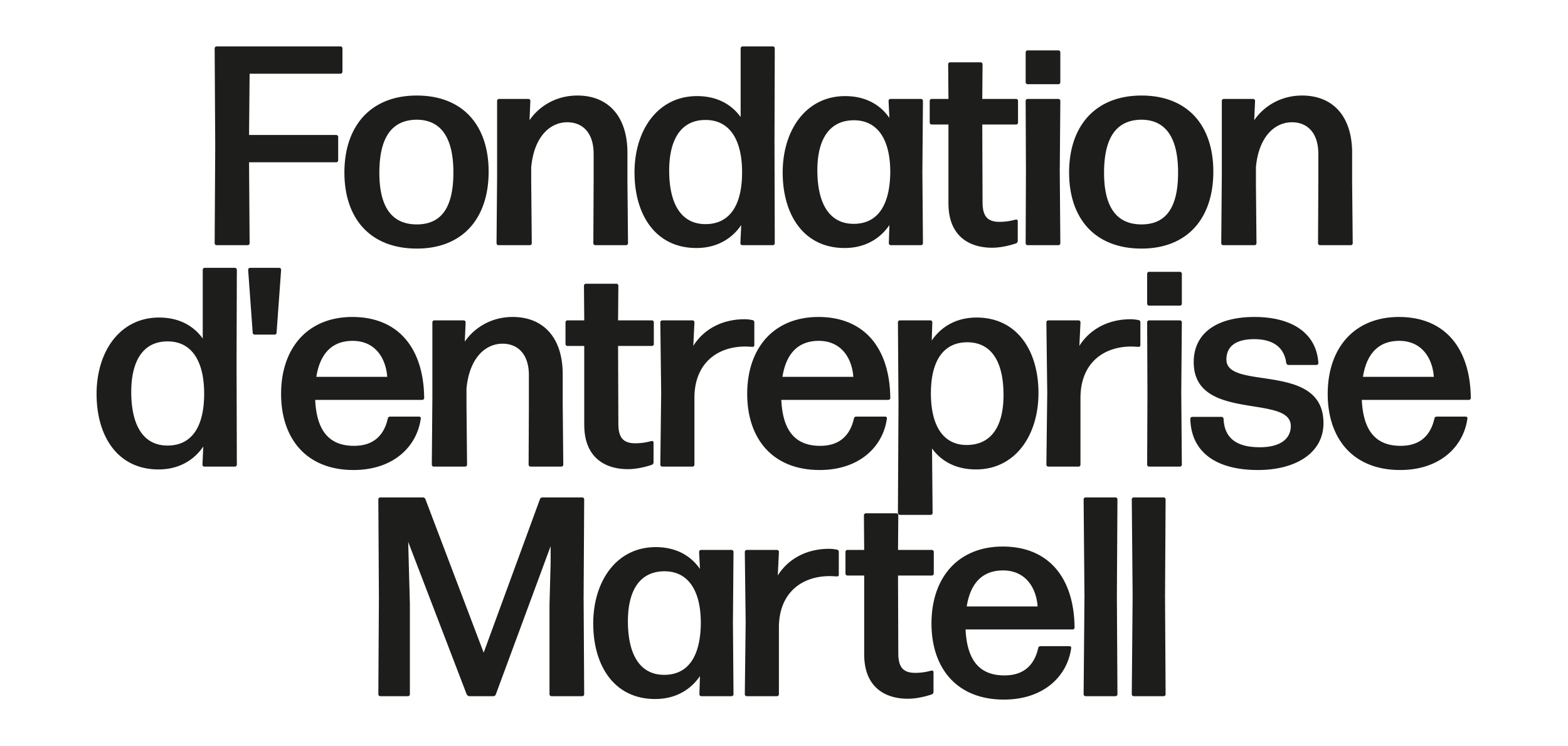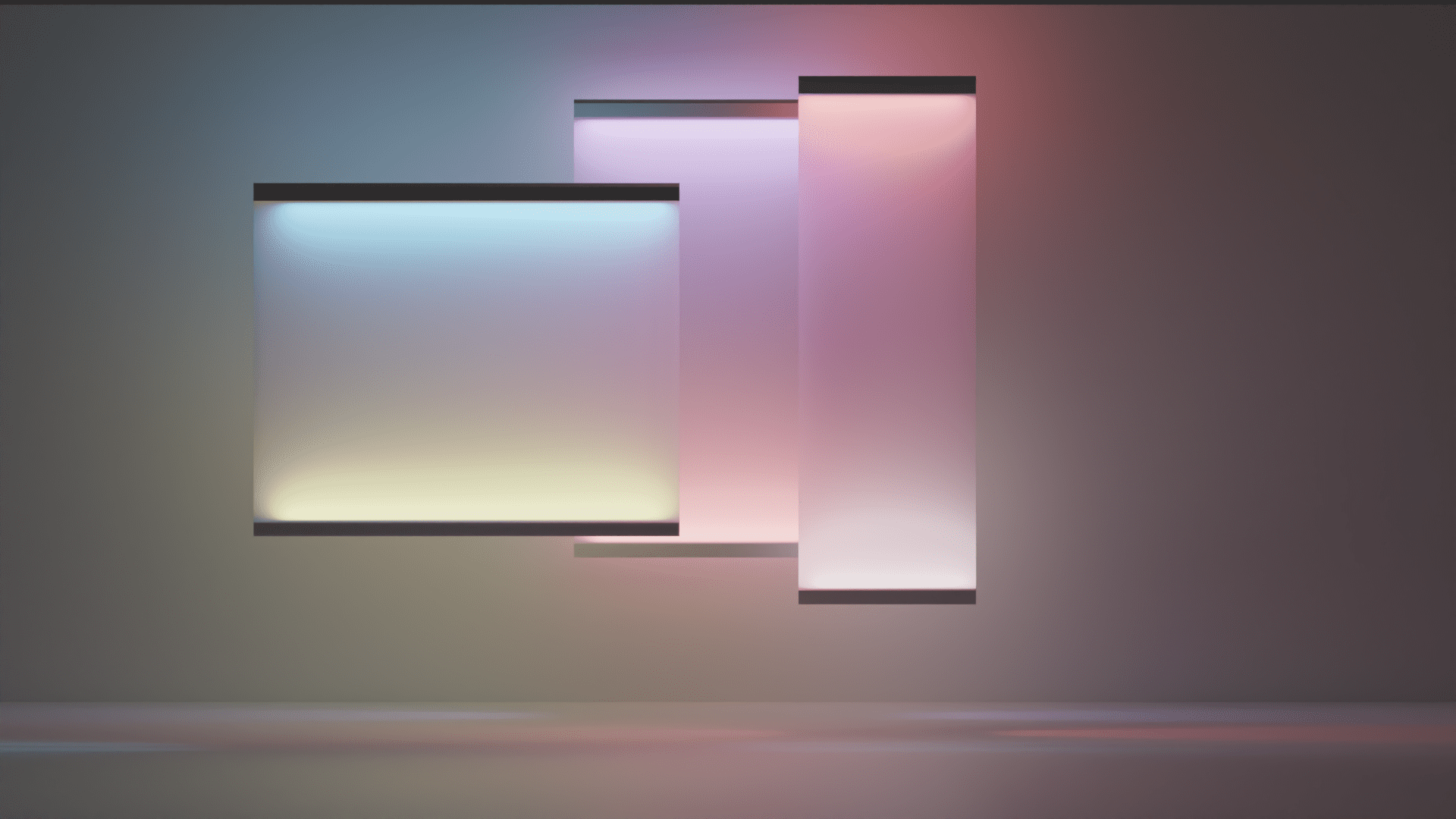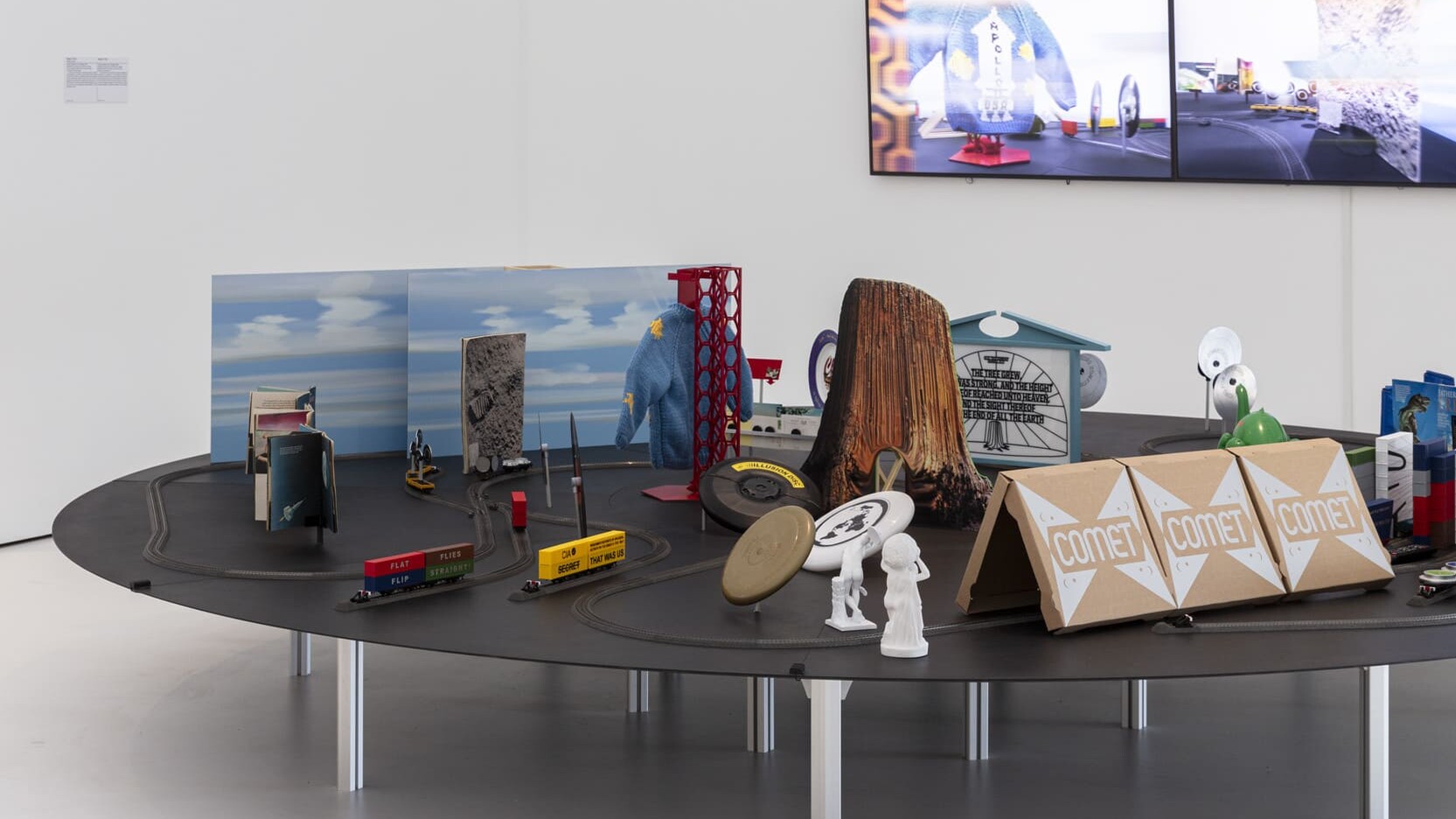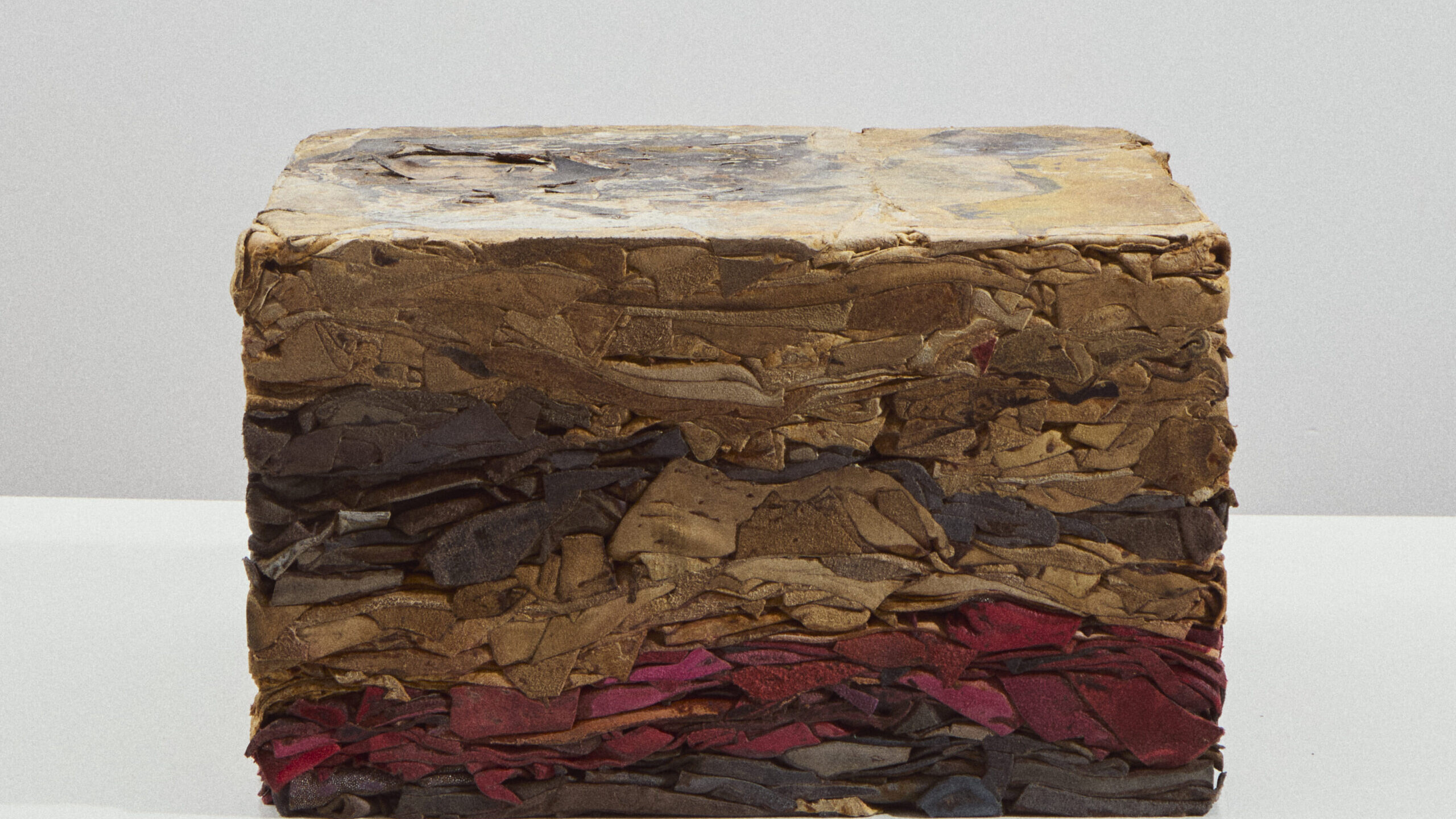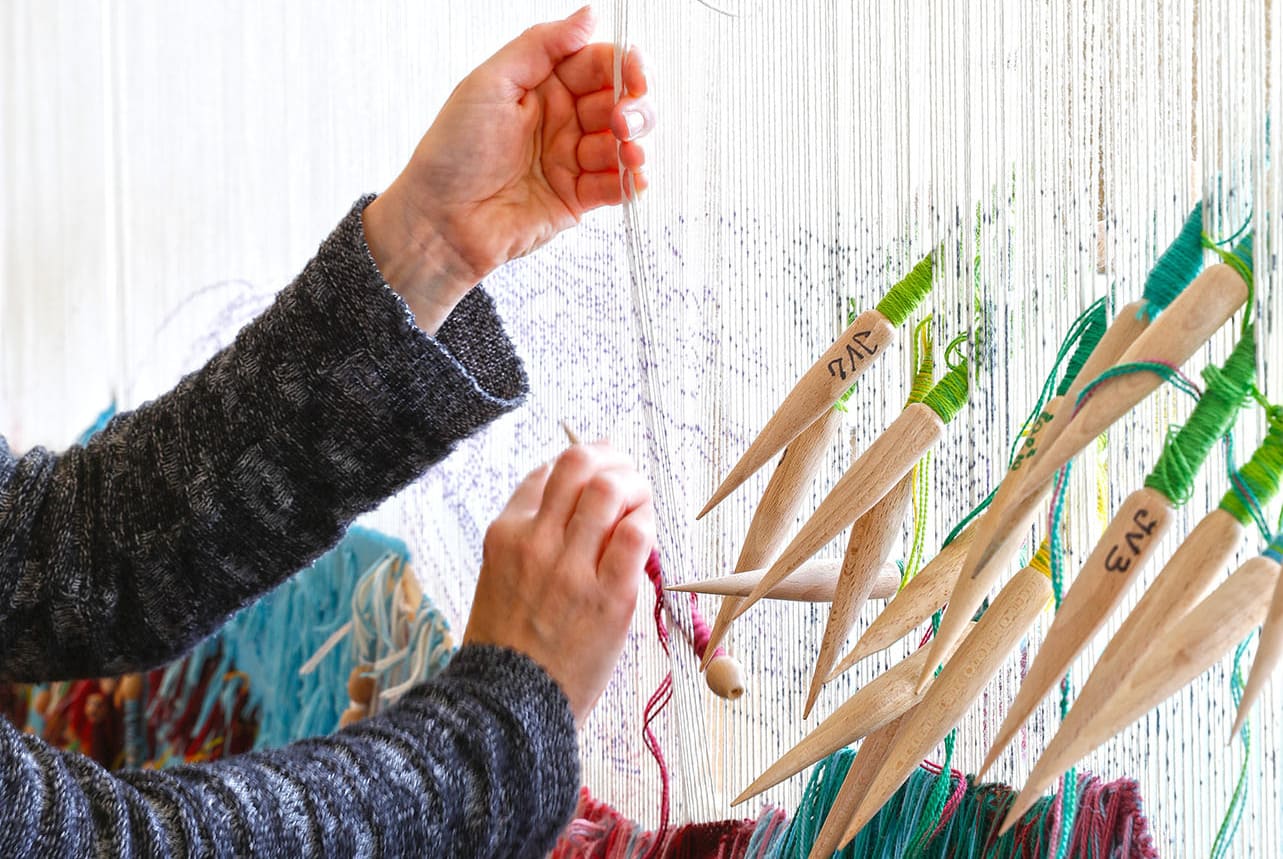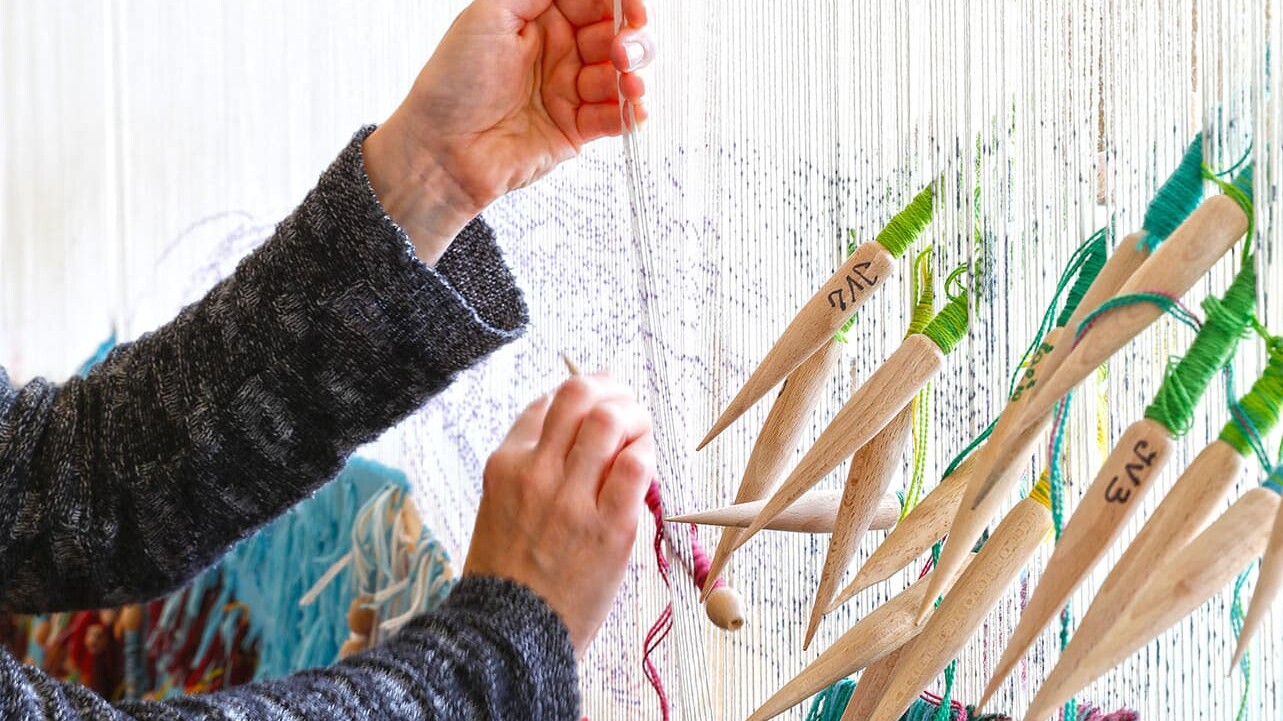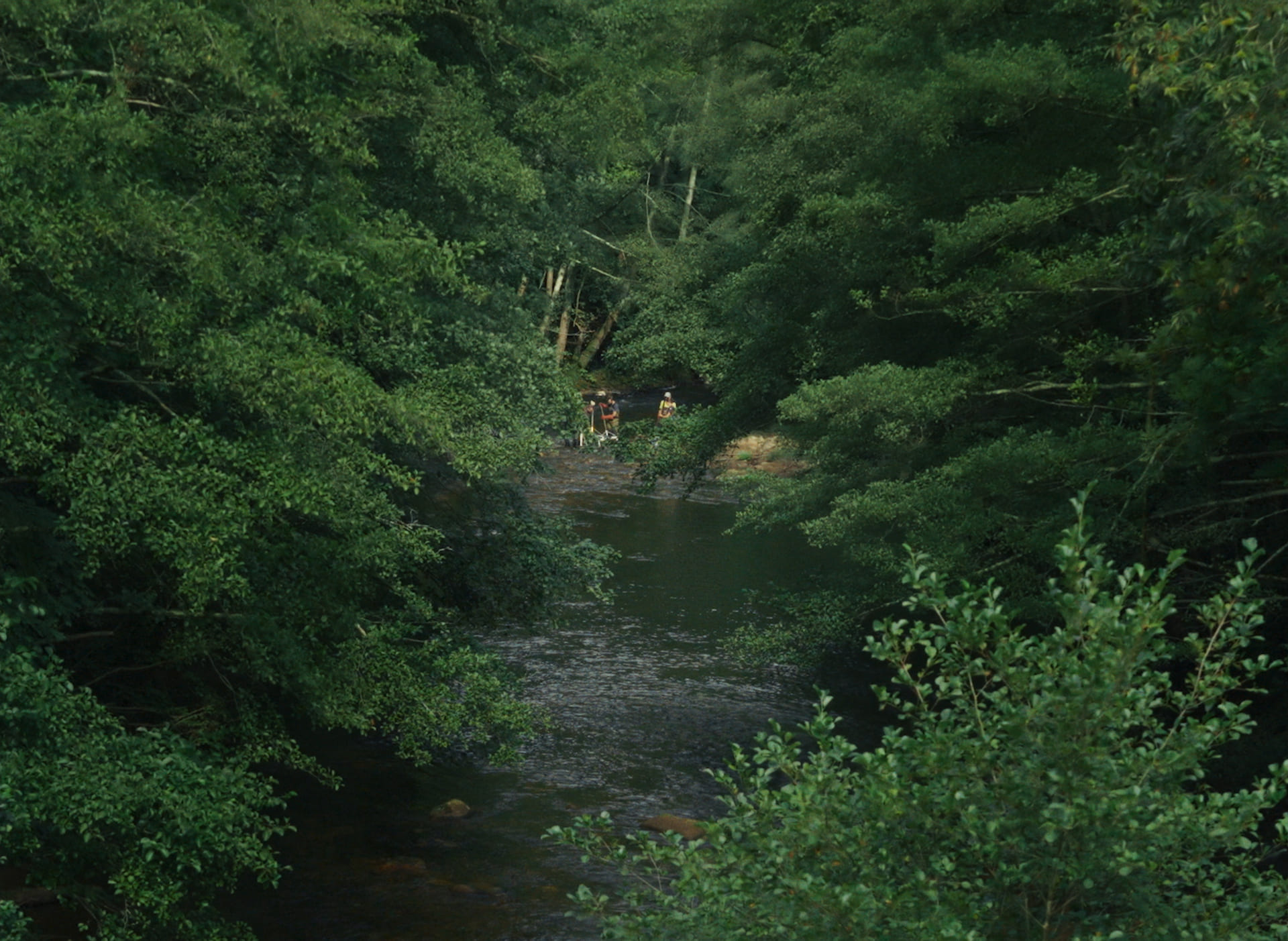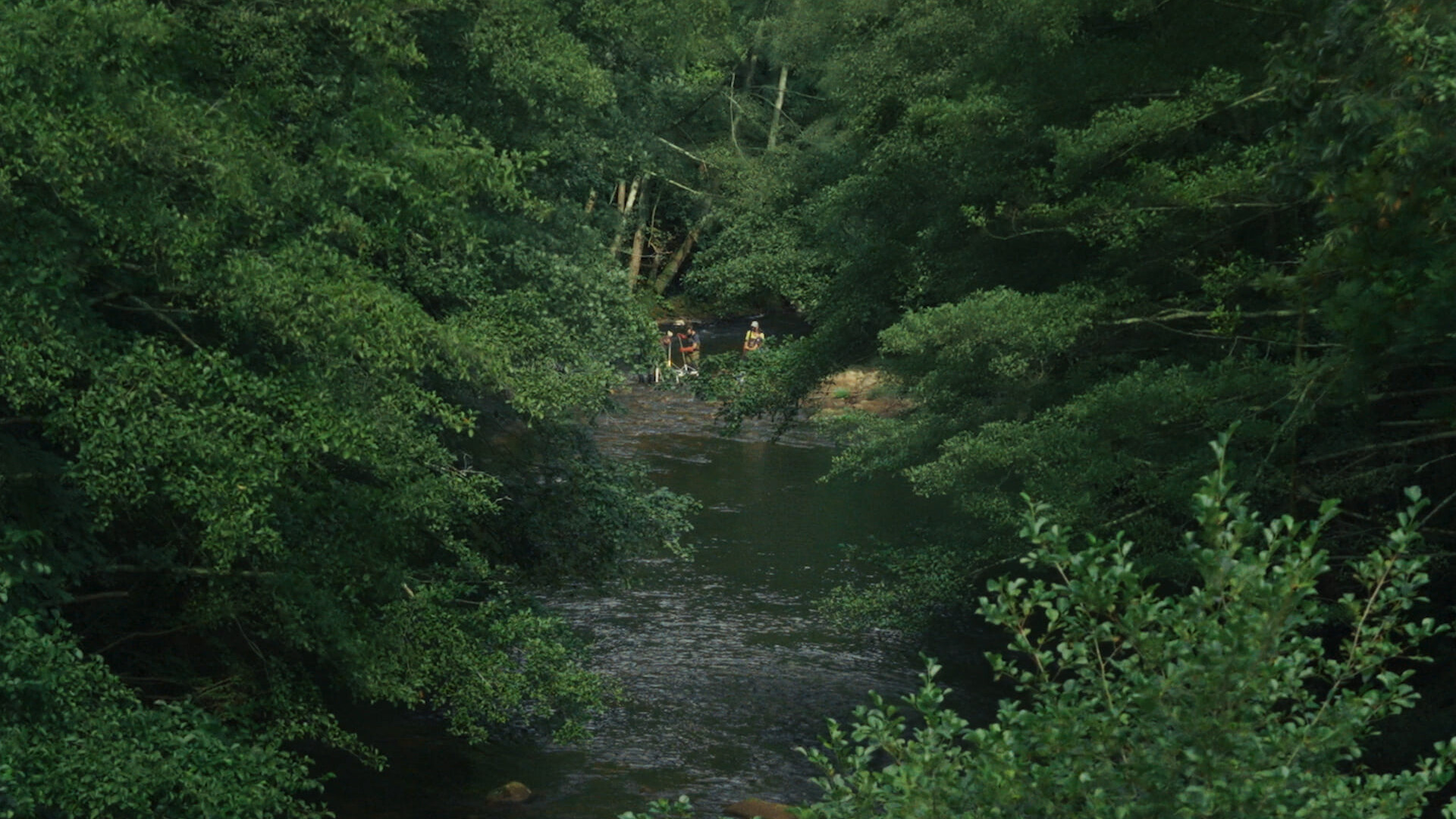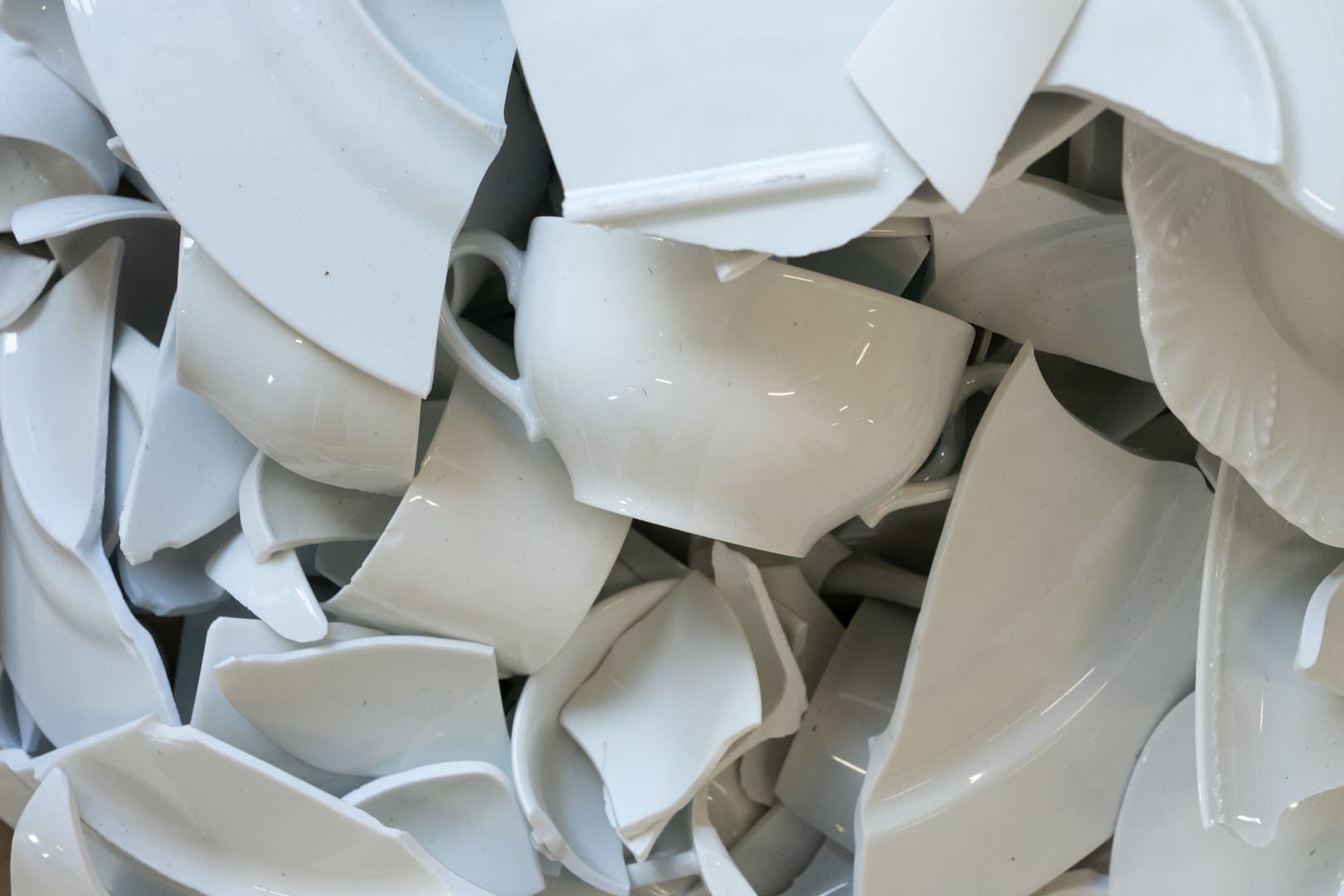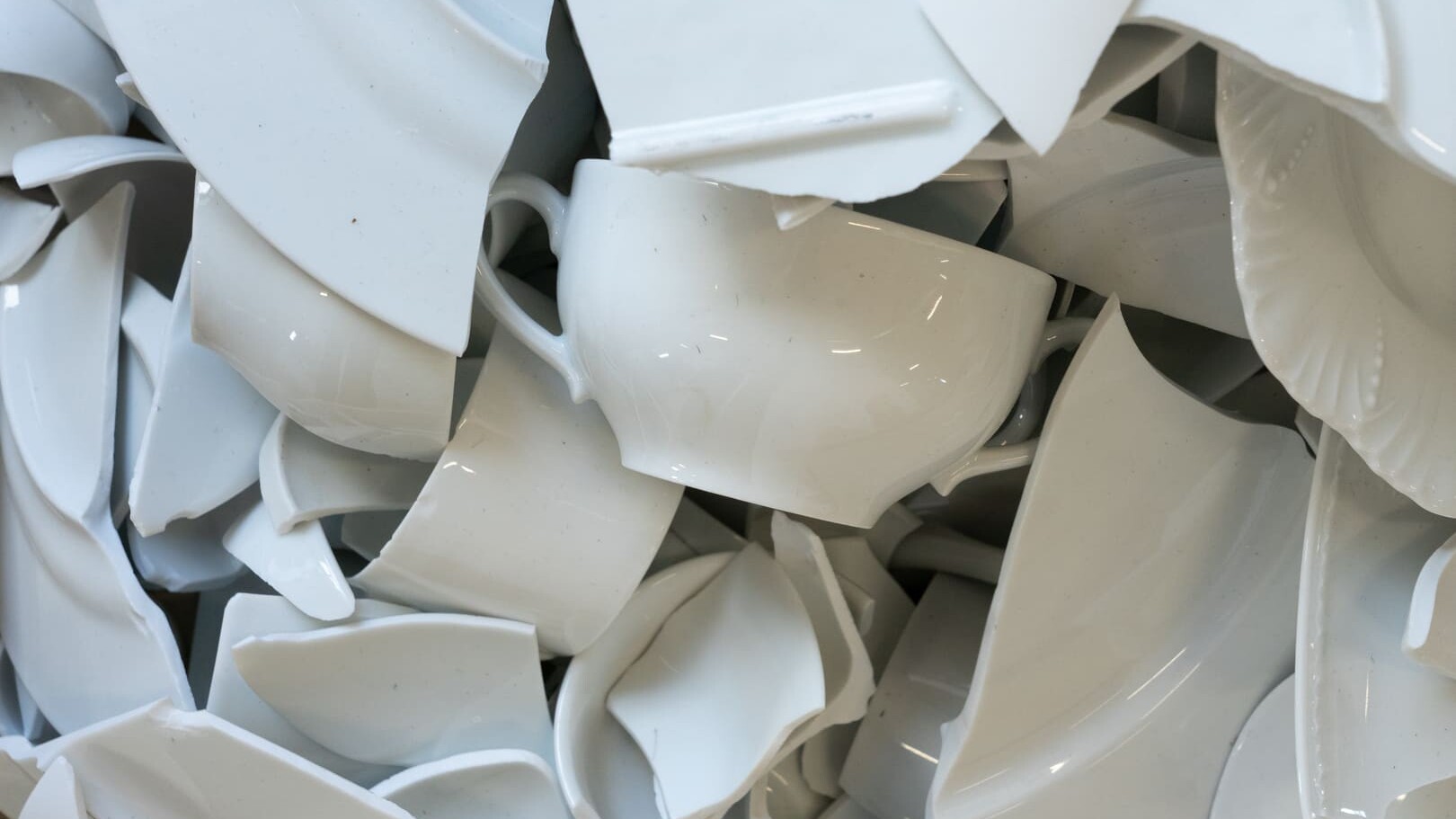JB BLUNK - CONTINUUM
JB BLUNK
CONTINUUM
June 8 - December 29,2024
The Fondation d’entreprise Martell is delighted to present the first retrospective exhibition in Europe of the American sculptor JB Blunk (James Blain Blunk, 1926-2002), organized in collaboration with his daughter Mariah Nielson, director of the JB Blunk Estate, with contributions from Anne Dressen, curator at the Musée d’Art Moderne de la Ville de Paris.
The exhibition CONTINUUM offers an immersion into the work of JB Blunk, unknown to the general public but iconic for many artists, for whom he remains a source of inspiration. The exhibition presents a vast collection of pieces created by Blunk, allowing viewers to grasp his unique and unconventional approach: whether creating works of art or everyday objects, his work – in constant dialogue with his environment – is a powerful plea, placing creation at the heart of everyday life.
Blunk drew his inspiration from his relationship with the nature surrounding him daily: located near the small town of Inverness, California, on an exceptional site in the heart of the forest and close to the Pacific coast. Throughout his life, the artist was dedicated to creating in deep connection with his environment, utilizing the natural resources around him (sequoia stumps and driftwood, earth, stones, etc.) to craft pieces, reconnecting with ancestral forms of expression and playing with scales ranging from modest to monumental.
A selection of over 150 pieces including sculptural works, ceramics, furniture, models, paintings, sketches, and original photographs drawn from both the JB Blunk Estate and private collections illustrates the breadth of his artistic practice, at the intersection of art and craftsmanship. The exhibition includes Blunk’s earliest known ceramic vessel made in Los Angeles while a student at UCLA in the 1940s, as well as a collection of maquettes which have rarely been seen by the public until now. Additionally, letters, works on paper and other ephemera drawn from family archives shed light on the artist’s ways of working, his personal and professional connections, as well as his sources of inspiration, whether from early civilizations, different approaches to spirituality, or his pioneering vision in ecology.
A new film commissioned for the occasion captures the multiple facets of the house and studio that the sculptor built entirely by hand, from the architectural structure to the furniture, including tableware, switches, and even a fully sculpted sink. Mainly made from salvaged materials, the Blunk House, emblematic of his practice and mindset, is considered his major work of total art. The short films aim to convey the unique environment in which Blunk lived with his family near the wild coast of Point Reyes in Northern California. A second new film presents a selection of four monumental works installed in the San Francisco region: carved from blocks of giant sequoia, these public seating sculptures in urban spaces testify to another aspect of Blunk’s work.
The exhibition spans 900m2 and approaches Blunk’s work through 6 thematic sections – Japan, Landscape, Home, Archetypes, Process and Public Projects – presenting his holistic approach to design, art, and architecture. Just as Blunk did not delineate between his life and work, the exhibition sections are intertwined and porous, giving the visitor the experience of his different methods, materials, and inspirations as he experienced them: in constant, insistent conversation with each other. The scenography was specially designed by designer Martino Gamper in collaboration with graphic designer Kajsa Ståhl (Åbäke).
“By unveiling the little-known work of an artist celebrating the power of nature, life, and creation at the intersection of disciplines, this retrospective aligns with the ambition of the Martell Foundation to encourage the emergence of innovative artistic approaches focused on the ecological transformation of territories and our ways of life.”
Anne-Claire Duprat, Director of the Fondation d’entreprise Martell
Top – Down : Courtesy JB Blunk Estate
Photos 1 et 2 : Blunk House in Inverness, Californie © Leslie Williamson
Photo 3 : JB Blunk, Untitled, c.1970 © Daniel Dent.
Photo 4 : JB Blunk carving Continuum, c. 1979. © Mike Conway
Photo 5 : JB Blunk, Untitled, c.1990 © Daniel Dent.
The exhibition catalogue is available and for sale at the Foundation’s shop.
Off-Site
From September 7th to October 20, 2024:
Opening of the Blunk Shop pop-up at the We Do Not Work Alone gallery – 58 rue du Vertbois, 75003 Paris.
Mathilde Pellé - Hollow Path


Photos by Mathilde Pellé
Couteau MB-2, Maison soutraire, 2021
Coupelle
MATHILDE PELLÉ
CHEMIN CREUX - HOLLOW PATH
June 8 - December 29, 2024
The Fondation d’Entreprise Martell launches its new exhibition-residency format and invites the designer Mathilde Pellé to share and develop her research approach called «Subtraction». By unfolding various aspects of the work carried out since 2016 – both experimental, critical, formal, and theoretical – the exhibition encourages a careful examination of objects proposed by our societies and the forms that can emerge through subtraction. Pellé continues the inexhaustible question that guides her creations, her thinking, and her relationship to design: «Why is there something rather than less?»
For the exhibition «Hollow Path», she experiments with the ruin of domestic environments by subtraction and imposes a protocol by which she removes material from everyday objects by scraping and stripping them, thus creating new objects from the void.
Drawing on aspects of her work, she shares her insights into a direction that is completely disregarded in favour of more, addition, and growth: that of less. Her approach leads her to study the barriers (political, social, psychological, etc.) that limit our ability to choose less and/or accept it. Why is adding more, in most cases, the predominant choice? What are the logics at work that lead us globally to choose more, how did they emerge, and why?
Since the limits linked to material production must be recognised and accepted globally in these times marked by ecological urgency, should we not at the same time open up a non-limiting exploration of less, of the little, of the smallest?
If it is approached as a direction to be probed, the less allows us to reconsider our material environments and authorises a critique of the dominant models that are curiously both producers of exhaustion and saturation.
Why are the abilities of artists and designers to read and analyse the world of forms (surrounding and/or produced) essential to the reformulation of a common equilibrium? In what ways can these non-academic approaches be the vectors or supports of profound transformations? It is these «hollow paths», without certain answers, that Mathilde Pellé explores.
Milan Design Week 2024
Milan Design Week 2024
April 15 to 21, 2024
Agora du Design
The Foundation is delighted to support the Agora du Design as it participates in Milan Design Week from April 15 to 21, 2024, where the projects of the 2021 laureates will be presented. This exhibition, held at BASE, an artistic research center, offers international visibility to designers Marine Rouit-Leduc, Hors-Studio, Emma Pflieger, and Antoine Fœglé.
In 2024, the Foundation announced a new biennial partnership with the Agora du Design, committing to host the winners of the 2023 and 2025 research grants in design and curation awarded by the Agora Prize, in residency. Thanks to the support of the Pernod Ricard Group, the Foundation also annually supports the presentation of the laureates’ work during a highlight of the international design scene.
Exhibition of the laureates from April 15 to 21, 2024, at BASE, Milan
Opening reception on April 15 at 5 p.m.
Woodworking Workshops
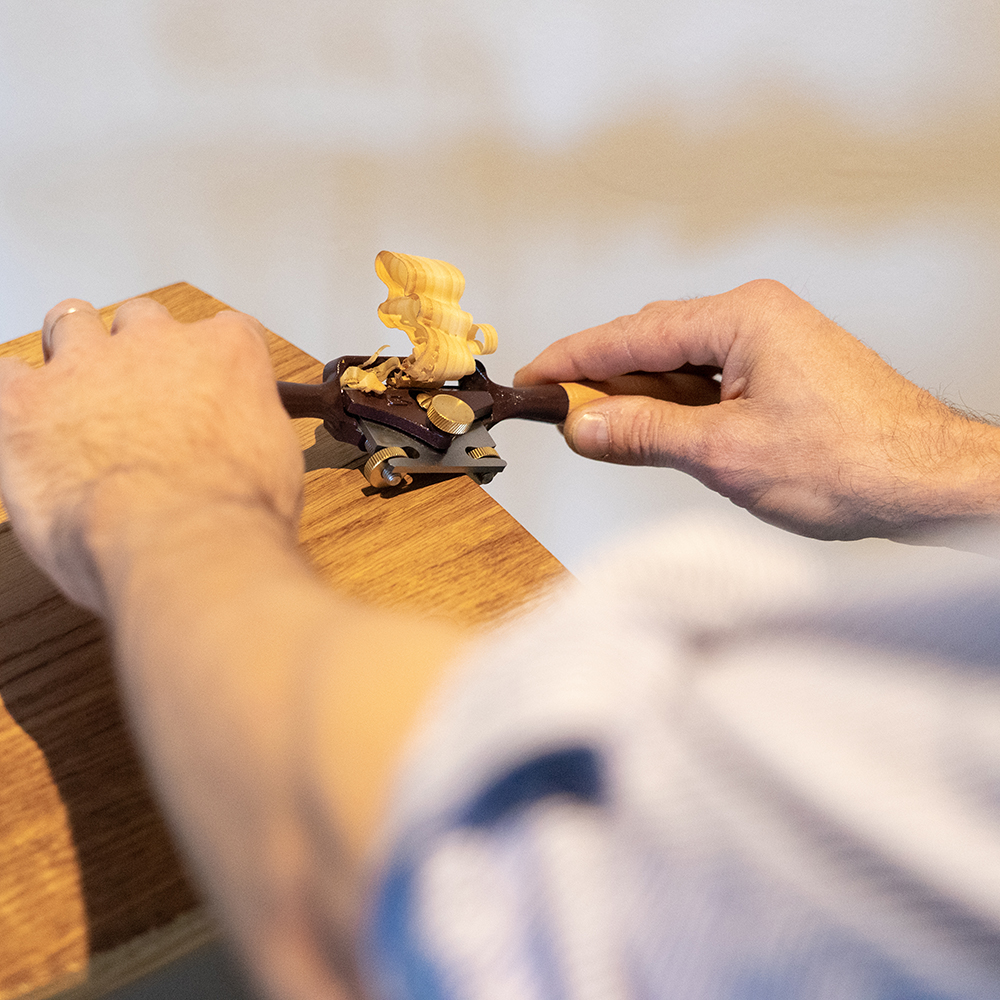
Woodwork workshop – Copyright: Benoit Chenudeau
WOODWORKING WORKSHOP
From February to June 2025
These introductory sessions to woodworking techniques, designed by cabinetmaker Mathias Heinisch, offer participants the chance to familiarize themselves with traditional woodworking tools (planse, chisels, saws, coping saws, scrapers, etc.) with the goal of learning how to create a shelf using traditional cabinetmaking joints (butt joints, dovetail joints, etc.) from reclaimed local wood offcuts.
Workshop Objectives:
– Discover the workshop and become familiar with the tools: planes, saw teeth, coping saws, etc.
– Learn about the material and textures of wood
– Learn manual techniques to create a shelf
Safety Guidelines:
– Wear flat, closed-toe shoes (safety overshoes will be provided)
– Wear comfortable clothing
– Tie back hair
An apron, cut-resistant gloves, and ear protection will be provided before the workshop.
Participants will not use power tools.
Registration (for adults only):
Register with Mathias Heinisch by email: ateliers_bois@orange.fr
Cost per session: €90 (6 hours); to be paid on-site by check or cash.
Maximum of 4 people per session.
In 2025 – 2 Wednesdays per month, from 2 pm to 8 pm:
In February: 5/02, 19/02
In March: 5/03, 19/03
In April: 2/04, 16/04, 30/04
In May: 14/05, 28/05
In June: 11/06, 25/06
Mathias Heinisch has a cabinetmaking background. He designs and creates custom furniture and fittings for private individuals, businesses, or artists. He primarily works with local woods and, whenever possible, reclaimed wood (oak, walnut, cedar, boxwood, maple, ash). He has also worked in a luthier workshop where he built and restored guitars.
Workshops in partnership with Essarbois.
Conference "Slow-Made"
European Days of Craft
April 5, 2024 at 6.30 pm
Conference "Slow-Made"
presented by Marc Bayard
Book here
On the occasion of the European Days of Crafts, Marc Bayard will lead a conference on “Slow Made.”
Slow Made means “made with the necessary time.” This movement, launched in 2012, aims to rehabilitate the value of time in order to produce, work, and consume better. It seeks to federate and valorize the creative sector in a broad sense and also to encourage the consumer to become an actor by choosing an object that carries shared values, a sustainable model opposed to the disposable consumption model and planned obsolescence.
This movement acknowledges a return to reality, the necessity of long-term thinking, and the affirmation of the body. Based on these observations, the movement, seen as a space for debate, develops perspectives for reflection in order to act on the current ecological transition.
Marc Bayard is the Head of the Mission for the Valorization of Crafts and Innovation at the Mobilier national, where he has programmed numerous contemporary artists, including Yan Pei-Ming, Eva Jospin, Pierre&Gilles, Maurizio Galante&Tal Lancman, Sheila Hicks, Jean-Charles de Castelbajac, or Harry Nuriev.
With a PhD in Art History from EHESS, he is a former resident of the Villa Medici and has directed the Department of Art History at this institution for six years. He has also been a member of the Cabinet of the Minister of Culture, Mr. Frédéric Mitterrand.
He is the author of “Design du pouvoir. L’Atelier de Recherche et de Création du Mobilier national” (2016), and “Slow-Made. Manifeste du geste humain” (2022).
Screening of the film "The River"
ScreeningMarch 21, 2024
The RiverA film by director Dominique Marchais
On the eve of World Water Day, the Foundation is organizing an exceptional screening of Dominique Marchais’ new film, “The River,” in the presence of the director. A poetic film about the rural world, an ode to water and nature which recently received the Jean Vigo Prize. The screening will be followed by a discussion between the director and designer Olivier Peyricot. Between the Pyrenees and the Atlantic flow powerful rivers known as the gaves. Cornfields make them thirsty, dams block salmon migration. Human activity disrupts the water cycle and the river’s biodiversity. Men and women cast their curious and loving gaze towards this fascinating world of beauty and disaster.
Thursday, March 21st from 8 pm at the Galaxy Cinema, Châteaubernard
In partnership with the Galaxy Cinema and Eurociné-Cognac
Unique rate: 5 euros
Conference : Is ceramic sustainable?
ConferenceDecember 15th, 2023
Is ceramic sustainable?Presented by Jean-Charles Hameau
In resonance with the Almanach exhibition, this conference aims to discover the connections that bind ceramics to the notions of sustainability, reusability, and recycling. We’ll delve into the key assets of ceramics (material qualities, enduring nature in associated uses), potential pathways to reduce its environmental impact, as well as the limitations to its reuse or recycling (energy cost of reusability, irreversible nature of clay transformation during firing, consumption habits).
Jean-Charles Hameau is a heritage curator and head of collections at the Musée national Adrien Dubouché (Limoges), where he has worked since 2014. Specializing in modern and contemporary art, he notably led the reorganization of the museum’s hall dedicated to contemporary ceramics (2018) and curated exhibitions such as ‘À table! Le repas, tout un art’ (2021), ‘Formes vivantes’ (2019), and ‘Avant, ici, Maintenant, l’expérience Non Sans Raison’ (2015).
